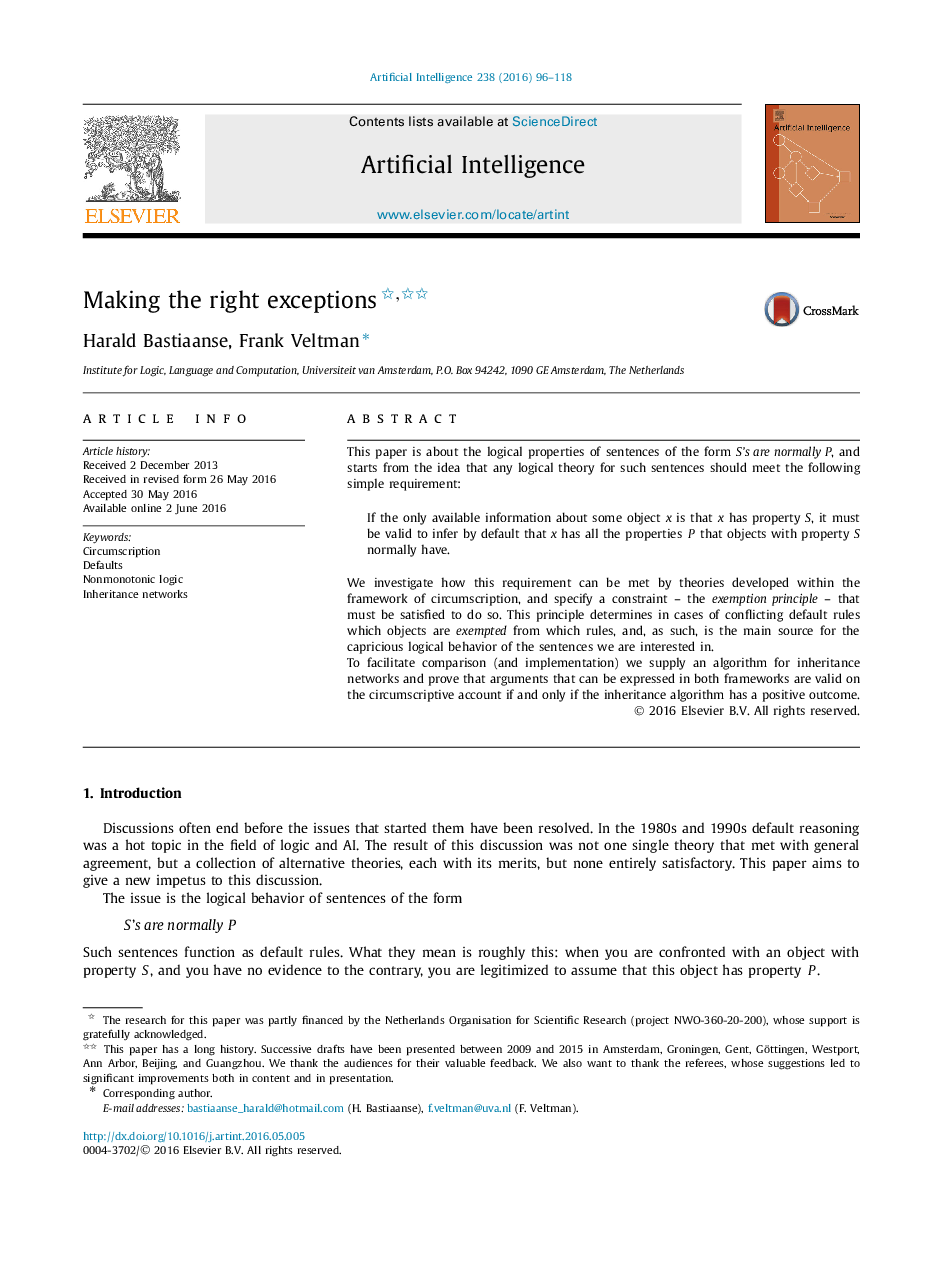| کد مقاله | کد نشریه | سال انتشار | مقاله انگلیسی | نسخه تمام متن |
|---|---|---|---|---|
| 376773 | 658307 | 2016 | 23 صفحه PDF | دانلود رایگان |
This paper is about the logical properties of sentences of the form S's are normally P, and starts from the idea that any logical theory for such sentences should meet the following simple requirement: If the only available information about some object x is that x has property S, it must be valid to infer by default that x has all the properties P that objects with property S normally have. We investigate how this requirement can be met by theories developed within the framework of circumscription, and specify a constraint – the exemption principle – that must be satisfied to do so. This principle determines in cases of conflicting default rules which objects are exempted from which rules, and, as such, is the main source for the capricious logical behavior of the sentences we are interested in.To facilitate comparison (and implementation) we supply an algorithm for inheritance networks and prove that arguments that can be expressed in both frameworks are valid on the circumscriptive account if and only if the inheritance algorithm has a positive outcome.
Journal: Artificial Intelligence - Volume 238, September 2016, Pages 96–118
